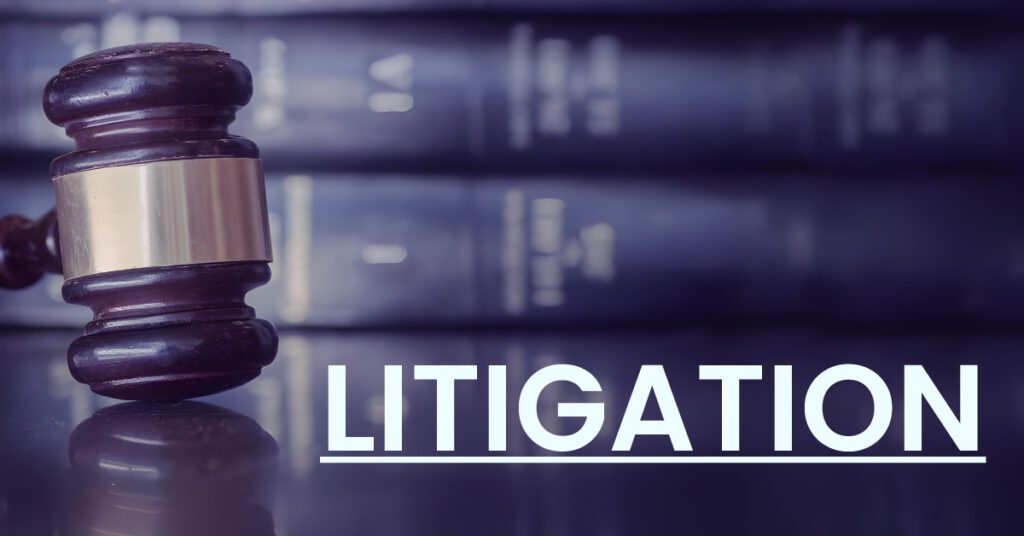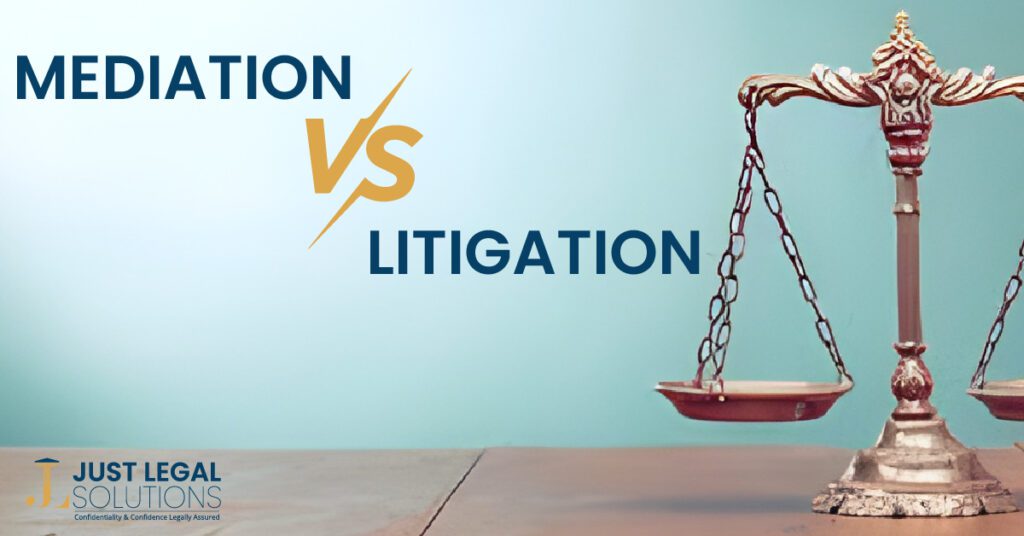When legal disputes arise, it is important to consider the most effective method for resolving them. Two common approaches are mediation and litigation. While both have their advantages and disadvantages, understanding the differences between the two can help you make an informed decision. In this article, we will compare and contrast mediation and litigation as methods for resolving legal disputes, emphasizing their pros and cons.
Mediation

Mediation is a voluntary and confidential process where a neutral third party, the mediator, helps the parties involved in a dispute reach a mutually acceptable agreement. Unlike litigation, mediation focuses on finding common ground and fostering communication between the parties. Here are some of the pros and cons of mediation:
Pros of Mediation:
- Cost-effective: Mediation tends to be less expensive than litigation, as it typically requires fewer formal procedures and legal representation.
- Time-efficient: Mediation allows parties to resolve their disputes more quickly, as it is not subject to the delays often associated with court proceedings.
- Preserves relationships: Mediation prioritizes cooperation and collaboration, which can help preserve relationships between the parties involved, making it particularly useful for disputes involving family, business partners, or neighbors.
Cons of Mediation:
- Non-binding: Unlike litigation, the decisions reached in mediation are not legally binding. If one party chooses not to abide by the agreement, the other party may need to resort to litigation.
- Power imbalance: In some cases, one party may have more power or influence than the other, which can affect the balance of negotiations during mediation.
- Unenforceability: While mediation can result in a mutually acceptable agreement, it may not be enforceable in court if one party fails to comply.
Litigation

Litigation is the traditional method of resolving legal disputes through the court system. It involves presenting arguments and evidence to a judge or jury, who then make a legally binding decision. Here are the pros and cons of litigation:
Pros of Litigation:
- Legally binding: The decisions made in a court of law are legally binding, meaning that both parties must adhere to the judgment.
- Access to legal remedies: Litigation allows parties to seek legal remedies, such as monetary compensation or injunctions, which may not be available through mediation.
- Formal process: Litigation follows a formal process with clear rules and procedures, ensuring that both parties have an equal opportunity to present their case.
Cons of Litigation:
- Expensive: Litigation can be costly, as it often requires legal representation, court fees, and other expenses associated with the formal court process.
- Time-consuming: Court proceedings can be lengthy and time-consuming, with the resolution of a dispute taking months or even years.
- Adversarial nature: Litigation often creates an adversarial environment, where parties may become more focused on winning the case rather than finding a mutually acceptable solution.
Ultimately, the choice between mediation and litigation depends on the nature of the dispute, the desired outcome, and the relationship between the parties involved. Mediation can offer a more cost-effective and time-efficient resolution, while litigation provides a legally binding decision and access to legal remedies. It is important to carefully consider the pros and cons of each method before deciding on the best approach for resolving a legal dispute.


